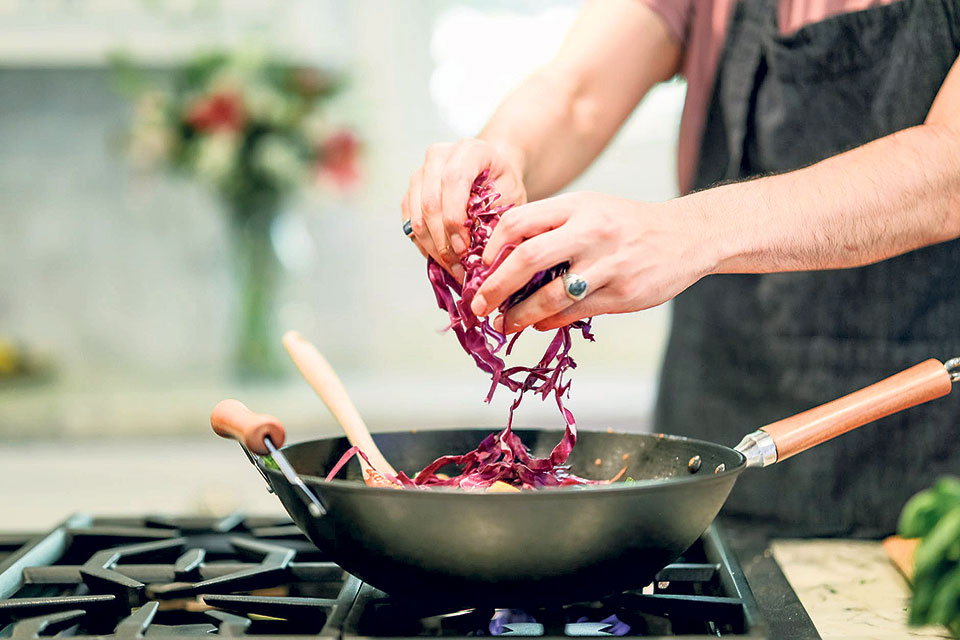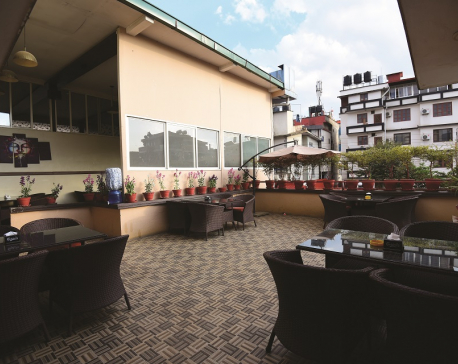
OR

A lot of people are incorporating meal prepping into their routines these days. It makes it easier and faster for you to ready your lunches and dinners, is cost effective, will keep your eating habits in track (so that you eat healthy), and can be modified according to your taste and nutritional needs. Because there are a lot of things you need to be mindful of while meal prepping, beginners might find it a little hard to get into this habit.
Thus we have broken down everything you need to know about meal prepping.
Pick a day or two
The whole point of meal prepping is readying everything you might need throughout the week in a single day. You could also prep your meals for longer but we suggest you don’t because some food items might go bad even when they are frozen or refrigerated for longer than a week. Make a list of things you will need for the meals you have planned to prepare the coming week and buy all of that in bulk. You also have to wash, peel, cut, and do anything else required to ready the portions the very same day. Because this is a lot of work – especially if you are prepping for a whole family – it might be easier for you to get it done in two days. In that case, list out everything you need and buy them on the first and do the rest of the work on the second.
Make a routine
If you want to prep your meals, you have to make a routine for your food. Make sure to plan the number of meals you will have each day, what dishes you will have during each of those meals, the ingredients needed to prepare those dishes, and the portions of ingredients you will need to prepare all of those dishes. While making this routine, you have to be creative about how you can use the same ingredient into your food in different ways on different days. Because you are buying the ingredients in bulk, you might need to have the same vegetable on three out of seven days of the week to consume that before it goes bad. Also, take into consideration the nutrients you are getting from your food and try your best to balance your food intake accordingly. If necessary, you could also consult a nutritionist for this.
The actual prepping
Once you have all the ingredients in the kitchen, start with washing all the fruits and vegetables. Once that’s done, chop them up and pack them – proportion wise – in airtight plastic containers or zip lock bags. Immediately store them into your refrigerator. Then move onto the cooking bit. If you have things like rice, quinoa or rotis in your meal plans then cook enough of those things to last you the coming week. You don’t need to proportion these items. You can just store them in a single large bowl and refrigerate them – don’t deep-freeze them though. This might not work for everyone but you could also portion the condiments you need (if you know the exact amount) to prepare your meals. Just do everything you need to, to prepare your food other than the actual cooking and assembling.
Cooking and assembling
Now that you have everything already done for your meal, take out the proportions needed for the exact meal you are going to have and cook that. Firstly, defrost your fruits and vegetables. You could use the defrosting setting on your microwave for this or put those fruits and vegetables in warm or room temperature water. As the second method will take some time, make sure you do that a few hours before you actually start cooking. You can easily microwave other food items like cooked rice, quinoa, or rotis to warm them up. Your cooked meal is ready in minutes because you don’t have to do any washing and chopping. All you have to do is assemble the ingredients and toss them in the pan. It’s really that simple.
Other things to keep in mind
Don’t pick complex meals or dishes that have very elaborate recipes because you will have a hard time prepping for that. Stick to simple and undemanding meals. Things like one pot meal might be your best option.
Research how long each of the ingredients you are using for your meals last when frozen. Sometimes, you might need to restock your ingredients mid-week too to keep them from spoiling.
Start with prepping the one meal that takes the most time. It could be your lunch, dinner, breakfast, or snack. Pick one and prep for just that one meal the first week before you take on the others. This will slowly ease you into the concept and habit of meal prepping.
Change up your routine – especially the meals you have planned out for the week – every week or every other week. By doing this, you will not be bored with the cooking and prepping process, the taste of the food, and will consume more nutrients too.
You May Like This

Getting it just right
Restaurants don’t just bank on food. Alongside a good meal, there is the question of ambience, service and being able... Read More...

Amazon confirms two employees in Italy have contracted coronavirus
WASHINGTON, March 2: Amazon.com Inc said late on Sunday that two employees in Milan, Italy, have contracted the coronavirus and... Read More...

Smugglers’ go-downs near customs office
SIRAHA, March 16: On March 10, a team from the District Police Office (DPO), Siraha, arrested a truck with an... Read More...







Just In
- NRB to provide collateral-free loans to foreign employment seekers
- NEB to publish Grade 12 results next week
- Body handover begins; Relatives remain dissatisfied with insurance, compensation amount
- NC defers its plan to join Koshi govt
- NRB to review microfinance loan interest rate
- 134 dead in floods and landslides since onset of monsoon this year
- Mahakali Irrigation Project sees only 22 percent physical progress in 18 years
- Singapore now holds world's most powerful passport; Nepal stays at 98th











Leave A Comment